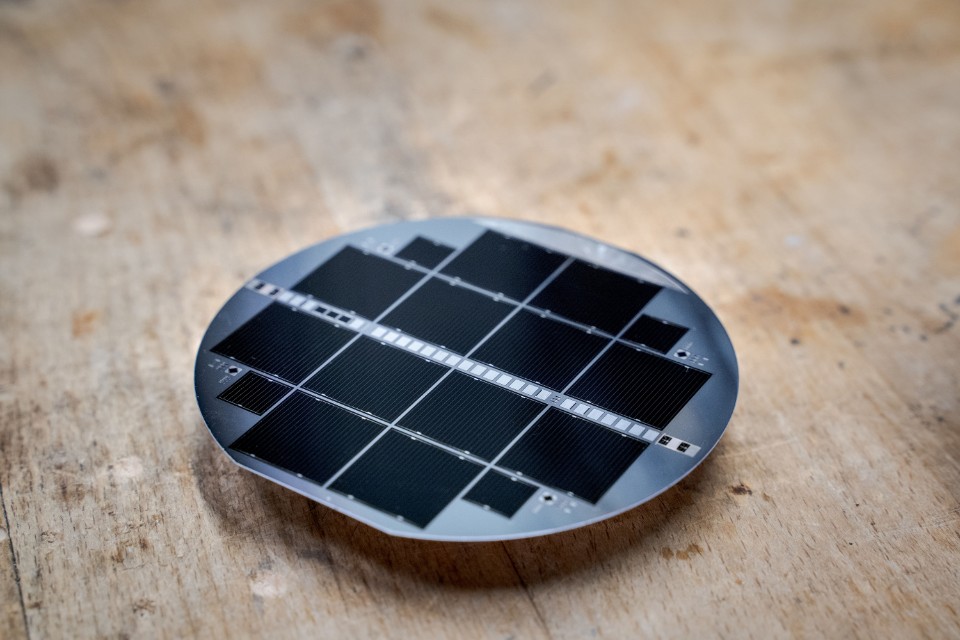Germany's Fraunhofer Institute for Solar Energy Systems ISE claims to have achieved a 25.9% conversion efficiency rate for a III-V tandem solar cell grown directly on silicon.
This result marks an improvement on the institute's previous 24.3% efficiency record.
“This was achieved by replacing a single thin layer within the multi-junction cell,” said researcher Markus Feifel. “A careful analysis of our cells showed that this layer created a potential barrier for electrons moving through the crystal structure.”
Silicon was used as an absorber for the infrared part of the spectrum. Several micrometer-thin layers of III-V compound semiconductors were deposited on top of the silicon layer. All of the cell's separate absorbers are internally interconnected by additional crystal layers.
The cell is a modified version of a 34.5%-efficient III-V solar cell that is manufactured through a process known as direct wafer bonding, where the III-V layers are first deposited on a aluminum gallium arsenide (GaAs) substrate and then pressed together.
“This technology is very efficient but also expensive,” the scientists said. “For this reason, Fraunhofer ISE has been working for many years on more direct manufacturing processes in which the III-V layers are deposited, or grown directly onto a silicon solar cell.”
The cost of producing solar cells based on compounds of III-V element materials – named according to the groups of the periodic table that they belong to – has confined such devices to niche applications including drones and satellites, where low weight and high efficiency are more pressing concerns than costs, in relation to the energy produced.
This content is protected by copyright and may not be reused. If you want to cooperate with us and would like to reuse some of our content, please contact: editors@pv-magazine.com.




By submitting this form you agree to pv magazine using your data for the purposes of publishing your comment.
Your personal data will only be disclosed or otherwise transmitted to third parties for the purposes of spam filtering or if this is necessary for technical maintenance of the website. Any other transfer to third parties will not take place unless this is justified on the basis of applicable data protection regulations or if pv magazine is legally obliged to do so.
You may revoke this consent at any time with effect for the future, in which case your personal data will be deleted immediately. Otherwise, your data will be deleted if pv magazine has processed your request or the purpose of data storage is fulfilled.
Further information on data privacy can be found in our Data Protection Policy.